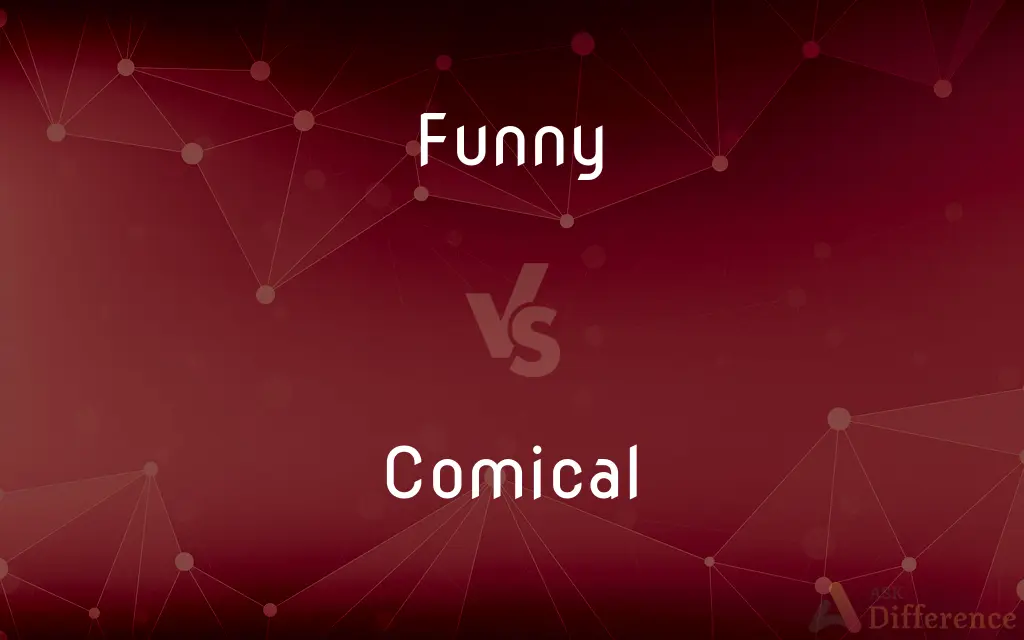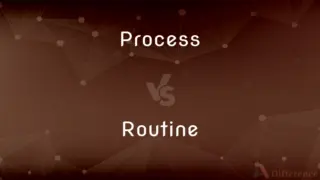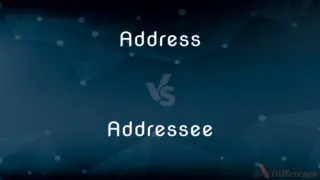Funny vs. Comical — What's the Difference?
By Tayyaba Rehman — Updated on October 25, 2023
Funny refers to something that is amusing or humorous, while comical specifically implies that the amusement arises from a ridiculous or absurd quality in the subject. Both are used to describe things that provoke amusement or laughter.

Difference Between Funny and Comical
Table of Contents
ADVERTISEMENT
Key Differences
Funny is a versatile term that broadly refers to anything causing amusement or laughter. Something funny can be intentionally humorous, like a joke, or unintentionally so, like a comical mishap. Comical, on the other hand, often implies an element of the ridiculous or absurd. When we describe something as comical, we often mean it's amusing in a somewhat exaggerated or over-the-top manner.
Funny can be subjective, with what's funny to one person not necessarily being funny to another. It's a term that can be applied to a vast array of situations, expressions, or phenomena that elicit laughter or amusement. Comical, while also subjective, tends to be used in situations where the humor arises from the situation's absurdity or unexpectedness. For instance, a person tripping in a slapstick manner might be described as comical.
In entertainment, both funny and comical are used to describe comedic works. However, a "funny movie" might refer to a film with a variety of comedic elements, while a "comical performance" might refer specifically to an actor's exaggerated, clownish actions. It's worth noting that while all comical things are funny, not all funny things are necessarily comical.
The word funny also has additional meanings not strictly related to humor. For example, one might say, "The milk smells funny," suggesting that something is off or unusual. Comical doesn't share this versatility and is primarily reserved for situations that are humorous in a quirky or exaggerated way.
Language is fluid, and the distinctions between words like funny and comical can be nuanced. While both words pertain to humor, their connotations can differ. Funny has broader applications, while comical often points towards humor of an exaggerated or absurd nature.
ADVERTISEMENT
Comparison Chart
Definition
Causing amusement or laughter
Amusing in a ridiculous or exaggerated manner
Subjectivity
What's funny to one might not be to another
Implies humor from absurdity or unexpectedness
Use in Entertainment
Describes a variety of comedic elements
Refers to exaggerated, clownish actions
Additional Meanings
Can suggest something is off or unusual
Primarily pertains to humor
Scope
Broader in application
More specific to exaggerated or absurd humor
Compare with Definitions
Funny
Curious or strange.
There's a funny noise coming from the engine.
Comical
Being in the style of a comic strip or cartoon.
The artist had a comical way of depicting politicians.
Funny
Displaying humor.
She has a funny way of telling stories.
Comical
Pertaining to comedy.
A comical performance stole the show.
Funny
Causing laughter or amusement; humorous
The play is hilariously funny
A funny story
Comical
Ludicrous; laughable.
The cat's comical reaction to the cucumber went viral.
Funny
Difficult to explain or understand; strange or odd
I had a funny feeling you'd be around
The funny thing is I can't remember much about it
I do get some funny looks
It's a funny old world
That's funny!—that vase of flowers has been moved
Comical
Causing amusement by being absurd or ridiculous.
His attempt to dance was quite comical.
Funny
Comic strips in newspapers
I read the sports page, funnies, and editorial
Comical
Amusing, especially in a ludicrous or absurd way
A series of comical misunderstandings
Funny
A joke or witty remark
He regaled his hosts with a few funnies
I was trying to make a funny, but failed miserably
Comical
Provoking mirth or amusement; funny.
Funny
Causing laughter or amusement
A funny cartoon.
Comical
Of or relating to comedy.
Funny
Making or given to making amusing jokes or witticisms
A colleague who is very funny.
Comical
(archaic) Originally, relating to comedy.
It was a comical performance.
Funny
Appropriate as the subject of a joke; deserving of a joke. Used in negative sentences to express disapproval or to emphasize the seriousness of something
There is nothing funny about getting the flu.
Comical
Funny, whimsically amusing.
The tutor excelled in comical scoldings.
Funny
Difficult to account for; unusual or odd
I had a funny feeling that she would call.
Comical
Laughable; ridiculous.
He's just put salt in his tea instead of sugar. What a comical error!
Funny
Suspiciously odd
It's funny how I seem to lose something every time he comes around.
Comical
Relating to comedy.
They deny it to be tragical because its catastrophe is a wedding, which hath ever been accounted comical.
Funny
Counterfeit or fraudulent
Tried to pass off funny money as legitimate.
Comical
Exciting mirth; droll; laughable; as, a comical story.
Funny
(Informal) Somewhat ill, painful, or abnormal
I felt funny after eating those clams. "a mole on his arm that has started to go funny" (Ann Cummins).
Comical
Arousing or provoking laughter;
An amusing film with a steady stream of pranks and pratfalls
An amusing fellow
A comic hat
A comical look of surprise
Funny stories that made everybody laugh
A very funny writer
It would have been laughable if it hadn't hurt so much
A mirthful experience
Risible courtroom antics
Funny
Offensively forward or disrespectful
She told him off after he started to get funny.
Comical
Exaggeratedly humorous.
His comical expressions always make us laugh.
Funny
Contrary to one's demands or expectations
Don't let the prisoners do anything funny.
Funny
A joke; a witticism
"He laughed because he did not know I was not making a funny" (Jonathan Safran Foer).
Funny
Comic strips.
Funny
The section of a newspaper containing comic strips.
Funny
Amusing; humorous; comical.
When I went to the circus, I only found the clowns funny.
Funny
Strange or unusual, often implying unpleasant.
The milk smelt funny so I poured it away.
I've got a funny feeling that this isn't going to work.
Funny
Showing unexpected resentment.
Funny
Homosexual; gay
Funny
(informal) A joke.
Funny
(informal) A comic strip.
Funny
(rowing) A rowboat with both ends pointed and out of the water.
Funny
(British) A narrow clinker-built boat for sculling.
Funny
(nonstandard) In an unusual manner; strangely.
Funny
In a manner seen as being typical of a homosexual, or indicating homosexuality
Funny
Droll; comical; amusing; laughable; inciting laughter.
Funny
A clinkerbuit, narrow boat for sculling.
Funny
Arousing or provoking laughter;
An amusing film with a steady stream of pranks and pratfalls
An amusing fellow
A comic hat
A comical look of surprise
Funny stories that made everybody laugh
A very funny writer
It would have been laughable if it hadn't hurt so much
A mirthful experience
Risible courtroom antics
Funny
Beyond or deviating from the usual or expected;
A curious hybrid accent
Her speech has a funny twang
They have some funny ideas about war
Had an odd name
The peculiar aromatic odor of cloves
Something definitely queer about this town
What a rum fellow
Singular behavior
Funny
Not as expected;
There was something fishy about the accident
Up to some funny business
Some definitely queer goings-on
A shady deal
Her motives were suspect
Suspicious behavior
Funny
Experiencing odd bodily sensations;
Told the doctor about the funny sensations in her chest
Funny
In a strange manner;
A queerly inscribed sheet of paper
He acted kind of funny
Funny
In a comical manner;
She acted comically
Funny
Causing laughter or amusement.
That was a funny joke.
Funny
Difficult to explain or understand; peculiar.
I have a funny feeling about this.
Funny
Entertaining or enjoyable.
We had a funny day at the amusement park.
Common Curiosities
Are "funny" and "comical" synonyms?
While both pertain to humor, "funny" is broader, and "comical" often implies something is amusing due to absurdity.
Is humor subjective for both "funny" and "comical"?
Yes, what one person finds funny or comical might not amuse another.
Would you use "comical" to describe a slightly off smell?
No, "comical" pertains to humor. "Funny" might be used in that context.
Can a situation be both funny and comical?
Absolutely. A situation can be amusing (funny) and also be exaggerated or absurd (comical).
Are all comical situations funny?
Typically, yes. "Comical" implies a type of humor.
Does "comical" always mean something is exaggerated?
Often, but not always. It usually points to humor that's quirky or exaggerated.
Can "funny" be used to describe something odd?
Yes, like when something "smells funny" or feels strange.
Is slapstick comedy more likely to be described as "funny" or "comical"?
Likely "comical," due to its exaggerated and absurd nature.
Is it common to use "funny" and "comical" interchangeably?
While they can be used interchangeably in some contexts, they have nuanced differences.
Can "funny" describe a feeling or intuition?
Yes, as in having a "funny feeling" about something.
If something is humorously absurd, which word best fits?
"Comical" would likely be the best fit for something humorously absurd.
Can a comedic actor be described using both words?
Yes, their performance might be "funny" due to its humor and "comical" due to its exaggerated style.
Are there genres of comedy more suited for the term "comical"?
Yes, genres that rely on exaggeration, absurdity, or slapstick might be termed "comical."
Can "funny" imply something is entertaining without being laugh-out-loud humorous?
Yes, like when having a "funny time" – it's enjoyable, not necessarily hilarious.
Are cartoons or comic strips more likely to be "funny" or "comical"?
They can be both, but their exaggerated style might lean more towards "comical."
Share Your Discovery

Previous Comparison
Process vs. Routine
Next Comparison
Address vs. AddresseeAuthor Spotlight
Written by
Tayyaba RehmanTayyaba Rehman is a distinguished writer, currently serving as a primary contributor to askdifference.com. As a researcher in semantics and etymology, Tayyaba's passion for the complexity of languages and their distinctions has found a perfect home on the platform. Tayyaba delves into the intricacies of language, distinguishing between commonly confused words and phrases, thereby providing clarity for readers worldwide.















































